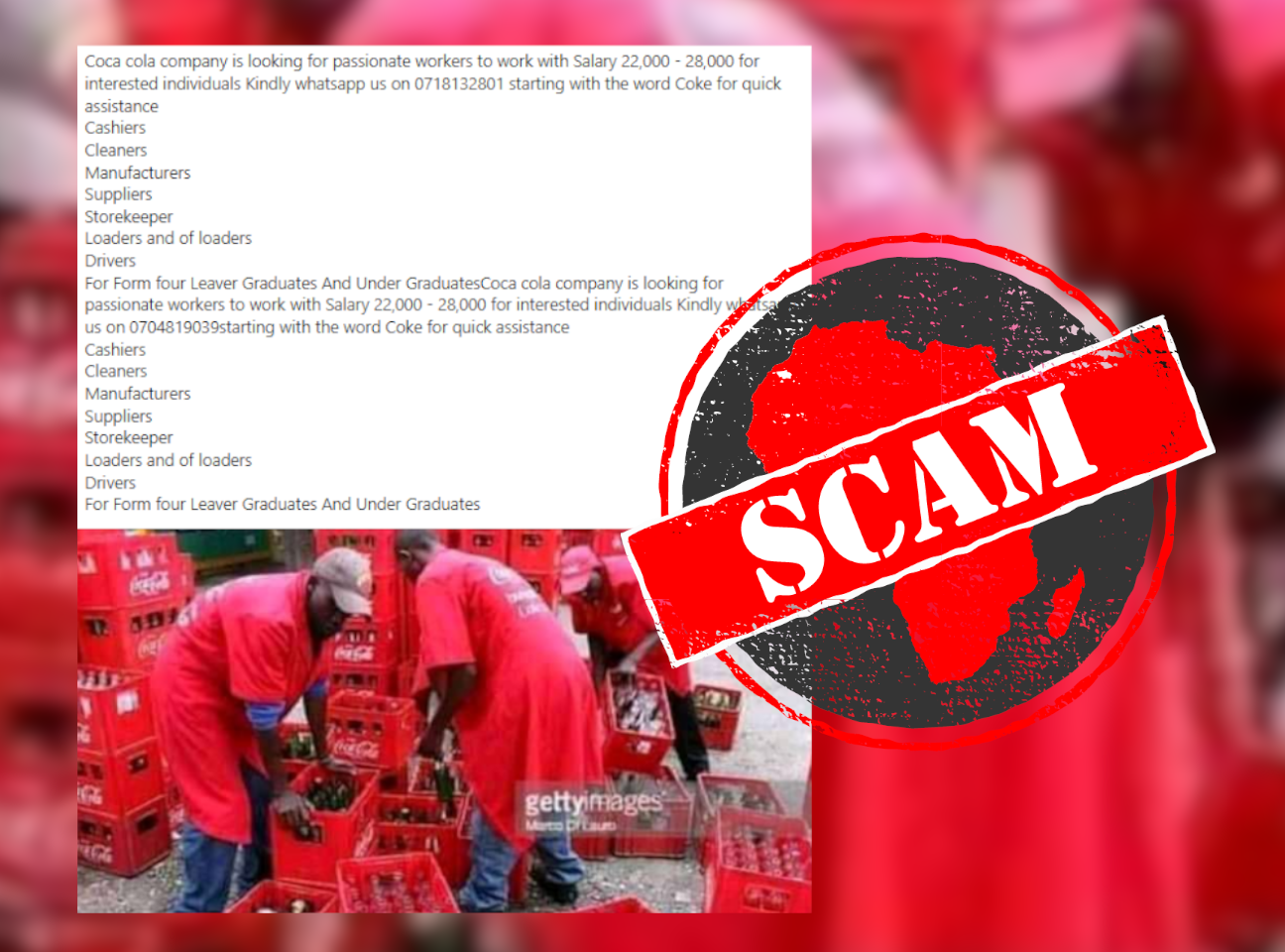“Coca cola company is looking for passionate workers to work with Salary 22,000 - 28,000,” reads an enticing job advert posted on Kenyan Facebook pages in July 2022.
It lists several positions available at the company, including cashiers, cleaners, manufacturers, suppliers, storekeepers, loaders and drivers.
The ad says the opportunities are for people who have just completed secondary school, and for undergraduates and graduates.
It then says: “[F]or interested individuals Kindly whatsapp us on 0704819039starting with the word Coke for quick assistance.”
The WhatsApp numbers aren’t all the same: different contacts appear on different versions of the ad, on different Facebook pages.
The ad appears here, here, here, here, here, here and here on Facebook.
But is this a real offer for Coca-Cola jobs in Kenya? We checked.

Identifying a scam
The advert’s poor writing is the first sign that it’s a scam. A major multinational company wouldn’t issue an ad with random capitalisation, misspellings and odd punctuation.
It also only gives a WhatsApp contact number for enquiries. Reputable companies provide official email addresses.
And the ad doesn’t link to the official Coca-Cola company website. The various phone numbers don’t match any listed by Coca-Cola.
The company previously told Africa Check that it would “never charge a fee for job applications” and that for all opportunities, interested applicants should visit the company’s careers section.
It added: “Please be advised that job openings are only posted by us and on our social media platforms.”
The ad circulating on Facebook is a scam.
To help protect yourself against scams like this, see Africa Check’s guide to Facebook scams and how to spot them.
Republish our content for free
For publishers: what to do if your post is rated false
A fact-checker has rated your Facebook or Instagram post as “false”, “altered”, “partly false” or “missing context”. This could have serious consequences. What do you do?
Click on our guide for the steps you should follow.
Publishers guideAfrica Check teams up with Facebook
Africa Check is a partner in Meta's third-party fact-checking programme to help stop the spread of false information on social media.
The content we rate as “false” will be downgraded on Facebook and Instagram. This means fewer people will see it.
You can also help identify false information on Facebook. This guide explains how.


Add new comment